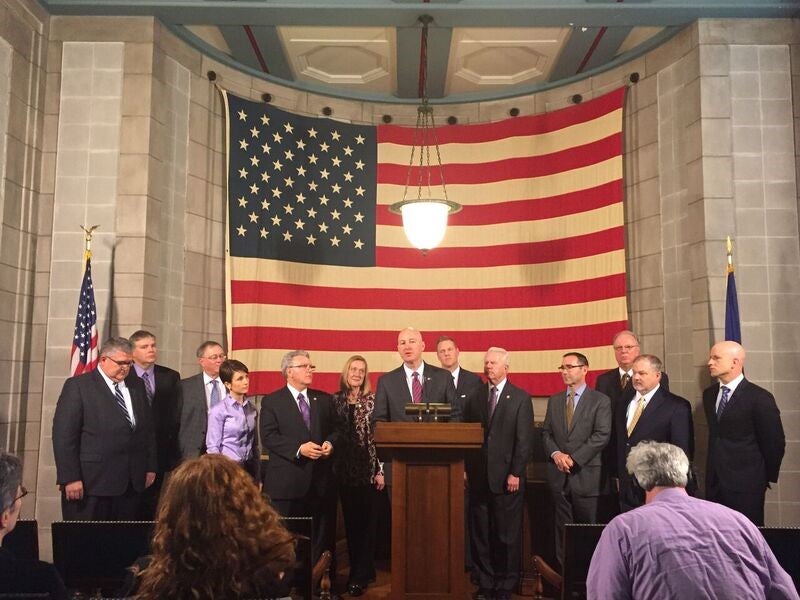
Comprehensive Banking Act Update Signed Into Law
LB 140 was signed into law by Governor Pete Ricketts on March 29, 2017, during a ceremony at the Nebraska State Capitol. LB 140 is the first comprehensive revision of the Nebraska Banking Act since 1963. LB 140 also updates related laws for banks and other financial institutions.
In 2016, then Banking, Commerce and Insurance (BCI) Committee Chair Jim Scheer introduced Legislative Resolution 430, proposing to study whether the Nebraska Banking Act should be updated. Senator Scheer gathered legislators, BCI committee staff, banking and credit union industry professionals and Department of Banking and Finance (NDBF) staff into a working group, and led a seven-month section by section review and redrafting of the Act. LB 140 is the product of the LR 430 study committee and reflects its goals: reducing regulatory complexity and carefully updating the Act to reflect the current banking environment, while protecting consumers and preserving the public confidence in the financial institutions of Nebraska.
LB 140 was introduced by Senator Matt Williams, Vice Chair of BCI, who participated in the working group. The bill as introduced encompassed 143 Pages and 157 Sections, consisting of a combination of new sections, repealed sections, and amendments of existing sections of the Banking Act. Among its provisions, LB 140 authorizes an increase in the maximum number of a bank board of directors from 15 to 25; prohibits bank-affiliated individuals from being paid a higher rate of interest on deposits than paid by the bank for similar deposits and provides that a violation is a Class IV felony; allows financial institutions, in a state of emergency, to open a temporary office to conduct business for up to 30 months; authorizes the Department to provide for the electronic filing of certain bonds; repeals a registration requirement for banks making personal loans; and clarifies merger and acquisition procedures.
The Legislature incorporated three other bills into LB 140: LB196, introduced by Sen. Joni Craighead at the request of NDBF, which provides an annual update of the equal rights laws for state-chartered depository financial institutions with their federal counterparts, and LB341 and LB 454, introduced by current BCI Chair Sen. Brett Lindstrom, who participated in the LR 430 working group. These bills allow for an opt-out of licensing requirements for bank executive officers and credit union loan officers, respectively.
With the exception of the three sections amended by former LB 196, which carried the emergency clause and became effective March 30, 2017, LB 140 will become effective on or about September 1, 2017. NDBF will provide detailed information on the changes prior to that date. The Slip Law version of LB 140 can be viewed at http://nebraskalegislature.gov/bills/view_bill.php?DocumentID=30705

